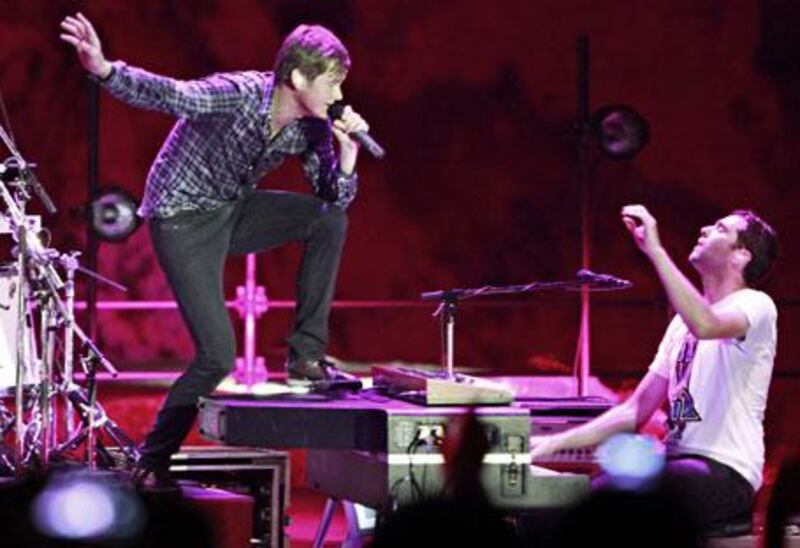Mention Keane and one or both of the following things will almost certainly crop up: that their lead singer Tom Chaplin has impossibly chubby cheeks; and that they have no guitarist or bass player. Not exactly the Rolling Stones, then. And yet they are no strangers to hard living, Chaplin famously having done a spell in rehab when their meteoric rise to fame following the release of their debut album, Hopes and Fears, all got a bit much.
Poor old Keane. Chaplin's misfortune only elicited howls of derision from fellow rockers who sniggered at their privileged background (they were privately educated) and refused to take them seriously. It is something they have continuously struggled with - this lack of "cool" - in the eyes of the music brethren anyway. The public on the other hand have loyally lapped up their piano-laden ballads, sending all three of their previous albums to No 1.
It has left them in a difficult position: should they appease their fans by churning out more of the same? Or should they break away into more experimental territory? Night Train, an EP of only eight tracks, seems to show that they are trying to do both. Recorded during their last world tour, the material is partly new and surprising, and partly yawningly familiar; not that Keane would see it that way. In a recent interview with The Sunday Times, Chaplin said: "We've become more confident about taking an idea and running with it.
"You have to do something radically different for people to even notice these days, and this is the high point of that spirit." "Radically different" it is not, but there are some nice new touches. Having no guitar or bass leaves plenty of room for other sounds: clapping, lasers, brass, even a dash of rap courtesy of the Somalian musician K'naan. All are here, helping to bolster the band's sound beyond simple tinkling. In fact, there is barely a piano in sight, so keen are they to abandon that particular albatross.
At its best, in Back in Time and Your Love, the result is an engaging cross between Duran Duran and The Pet Shop Boys. At its worst, You've got to Help Yourself, featuring the Japanese singer Ishin Denshin (presumably they were in Japan at the time) is irritatingly bouncy. "See how the world goes round; you've got to help yourself," they sing inanely. If this is Chaplin's world view post-rehab, then perhaps those fellow rockers have a point.
Making catchy tunes has never been Keane's problem; it has been packaging them in a way that doesn't sound syrupy. By embracing the 1980s synth pop sound, they have found a way of doing that. But it's not nearly as daring or experimental as they would like to think. "I want people to listen to Keane and be bewildered," Chaplin continues in the same interview. There is little bewildering about Night Train. But as a stop-gap between studio albums goes, it shows a step, or a least a shuffle, in the right direction.





